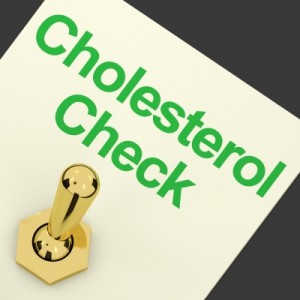 Despite popular belief that it’s the cholesterol in your food that influences cholesterol in the bloodstream, that has not been proven to be the case. Your body makes 75% of the cholesterol it needs to survive for healthy brain and cell function. The other 25% it MUST take in from the food you eat.
Despite popular belief that it’s the cholesterol in your food that influences cholesterol in the bloodstream, that has not been proven to be the case. Your body makes 75% of the cholesterol it needs to survive for healthy brain and cell function. The other 25% it MUST take in from the food you eat.
When you eat more cholesterol in your diet, the body simply adjusts its cholesterol production downward to compensate. Research confirms that eating cholesterol-rich foods does not increase your cholesterol levels; the body is an adaptive, reactive mechanism which responds to changing conditions and balances appropriately.
(There are foods that will raise your cholesterol in an unhealthy way and we’ll talk about that later.)
We need cholesterol because it keeps cell membranes from falling apart and plays an integral part in cellular repair. It builds brain and nerve tissue, supports the immune system, and maintains neurotransmitter and brain function.
Cholesterol is also a vital pre-cursor to many major hormones including testosterone, progesterone, estrogen, cortisol, and dehydroepiandrosterone (DHEA). Cholesterol helps regulate mood, is required for synthesis of vitamin D and helps us digest fat-soluble vitamins such as A,D,E and K. We could not live without cholesterol!
If you don’t eat cholesterol, your body will go into crisis mode and start making the extra cholesterol it needs to survive and thrive. When you are tested, your cholesterol will be high, even though you are actually cholesterol deficient.
Let’s take a quick look briefly at the body’s inflammatory process to better understand what cholesterol does. Bear with me while we talk a little science.
When you cut yourself, the damaged tissue releases chemicals to start the inflammation process. Blood vessels constrict to slow down bleeding, blood thickens so it can clot and cells multiply to repair damage and facilitate healing while the immune system calls on cells and chemicals to protect against viruses and bacteria from attacking the cut.
This is very similar to what occurs within the arteries. As damage occurs from oxidizing fats and nutrient imbalances, chemicals are released to begin the inflammatory process. Arteries constrict, blood begins to clot, the immune system sends help, and nearby cells are told to multiply. As this process occurs over and over again in the artery lining, scars called plaque form. Over time, blood thickening and artery constriction combine to make a heart attack or high blood pressure more likely.
So remember the first step after trauma: chemicals are released to begin inflammation and start the healing process. Enter cholesterol, whose primary function is cell repair. Cholesterol is sent to help repair the damaged tissue in the artery linings and elsewhere: it is actually helping your body heal and keep you alive!
Now if the inflammatory process is occurring repeatedly, cholesterol is continually being manufactured or recycled in order to facilitate the healing process. When tested, your cholesterol levels will seem high.
But your body needs that cholesterol to heal, and your body is manufacturing the exact level of cholesterol it needs for brain and cell function along with that healing.
What effect do you think forcing cholesterol levels down artificially with a drug like a statin would have on the body? And if eating cholesterol-rich foods doesn’t increase your cholesterol levels, what does?
We just learned that cholesterol steps in to help cells heal, it is released upon infection or inflammation. It is also a precursor for stress hormones.
Whenever you the body is fighting an infection, whether it is an environmental allergy like pollen, a food allergy like gluten, or a bacterial or viral infection, you will find high cholesterol levels. If the body is under stress, cholesterol, which is needed to make stress hormones like cortisol, will be high. If the stress is short-lived, cholesterol will later drop: if you live a life of constant stress, you will see chronic low-grade inflammation, and consistently higher cholesterol levels as well.
Take the cholesterol away and leave the other concerns like infections and bad food choices and your body’s ability to heal is compromised. Take the cholesterol away but leave the stress triggers and you interfere with the body’s ability produce stress hormones, which can lead to serious health concerns.
Cholesterol is actually protective in these cases and higher levels are actually beneficial to the body’s health and well-being. We’ll cover this further in a future article, but I want to help you begin to see (because I realize this is a whole new way of thinking about cholesterol and understanding its role in your body for most people so it may take some time to really register) that cholesterol and yes sometimes high levels cholesterol levels are not only necessary, they can actually be beneficial.
Several studies have shown that people with high cholesterol actually live longer than people with low cholesterol. And 75% of people hospitalized for a heart attack had “normal” cholesterol. Perhaps you can begin to see why high cholesterol may not be a bad thing, especially since it hasn’t been directly linked to heart attacks or strokes.
As we saw when we looked at the inflammatory process in the body, cholesterol is present whenever there is inflammation in the body. The inflammation that occurs from a stressful moment, and infection or an allergy is part of the body’s natural healing process occurring as nature intends it and that’s a good thing.
Sometimes, however, there is inflammation that occurs that is not necessary or desirable; it is self-induced from food choices that are not natural for our bodies. In today’s world, we bombard our body with artificial chemicals and nutrient imbalances that the body never had to deal with before. And we do it over and over and over, each and every day.
Eating cholesterol rich foods doesn’t raise cholesterol. But there are some foods that do. And that is a topic for another article you can read for free at www.nehealthadvisory.com
To your wellness and health: your true wealth!
Inger
Author: Inger Pols is the Editor of the New England Health Advisory and Author/Creator, Finally Make It Happen, the proven process to get what you want. Get a free special report on The Truth About Sugar: It’s Not All Equal. Learn more about Inger and receive her free bestselling ebook What Your Doctor Isn’t Telling You.
Article Photo: courtesy of Stuart Miles | FreeDigitalPhotos.net



 Follow me on Twitter
Follow me on Twitter 